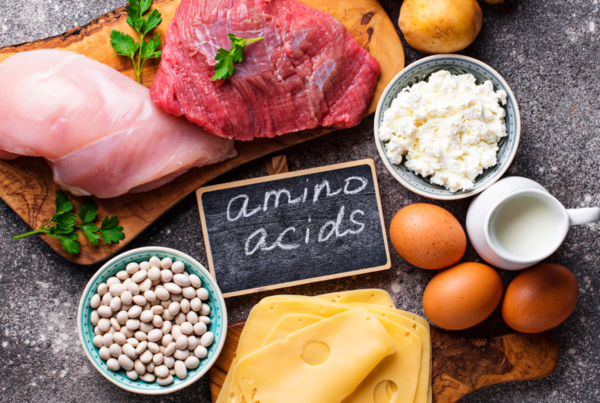Food manufacturing methods have changed drastically in the last several decades to provide us with boxed and prepackaged options in the grocery store for the sake of convenience and low cost. As a result, our diet has made a massive shift from what our bodies were designed to handle, and it’s really showing—particularly in our expanding waistlines.
We’ve all heard how bad for us highly processed foods are, but not everyone knows why such processing is harmful. So let’s break it down and examine the details.
Higher Sugar and High Fructose Corn Syrup
Boxed foods often contain excess sugar and high fructose corn syrup (HFCS) as an additive to make up for flavor removed through the manufacturing process. These sugars boost the caloric content without adding nutrition to the food, and we’re all aware increased consumption of sugar and HFCS increases the body’s insulin resistance, which has led to increased diagnoses of Type 2 Diabetes in Americans. Sugar has so many more detrimental effects, but in essence, too much is a bad thing.
Artificial Ingredients
In order to prolong shelf-life, prepackaged processed foods contain preservatives, coloring, added textures, and flavors that are also removed in the manufacturing of the food. Chemicals in our food—some added to the actual food and some leeched in through the packaging—can be detrimental to our bodies. The phthalates found in macaroni and cheese boxes have been known to interfere with testosterone production, resulting in low sperm count, genital birth defects, infertility, and a higher rate of testicular cancer later in life in males.
Competitive Companies Engineer “Rewarding” Foods
The competition in the food industry is fierce. Between the marketing surrounding whose tastes better and whose is better for you, it’s difficult to decipher the truth. Because evolution gave us taste buds to facilitate good choices in our natural food surroundings, we gravitate toward sweet, salty, and fatty foods because they contain energy for survival. The food companies know this, and engineer their foods to be as desirable as possible. By tripping our brain’s “reward” mechanism when we consume their food, they’re bypassing our body’s natural evolutionary process and harming our metabolic flexibility—how our bodies burn energy—so we crave their product over all others.
Food Addiction
This can actually result in food addiction. Our brain releases dopamine as encouragement when we consume good tasting food on the assumption that correlates with healthy food. In some people, reaction to that dopamine infusion is as powerful as the high from drugs like cocaine. The problem is, we can’t cease eating like we can alcohol or drugs to overcome these addictions.
Refined Carbs
Refined carbs are simple carbs, perfect for food processing. They take the body very little time to break down, which results in rapid spikes in insulin and blood sugar levels. This energy burns fast, which means we crash fast, and are hungry (often for more refined carbs) much quicker than we should be. So we eat more. Lather, rinse, repeat. Overall, processed foods require less time and energy to digest, so over time, we consume more frequently, resulting in not enough time between meals to burn up what calories we’ve eaten. The leftovers get stored as fat.
Fewer Nutrients, Including Fiber
To extend shelf life, the manufacturing process strips whole foods of what makes them perishable—this means nutrients, including fiber necessary to slow down carbohydrate absorption so we feel satisfied longer with fewer calories. Not only that, synthetic vitamins and minerals are added back in to make up for this lack of nutrients, but synthetics are nowhere near as complex as those naturally found in whole foods. Science is only just beginning to grasp all the trace nutrients found in whole plant and animal foods and their benefits on the human body. Synthetic supplements are a poor substitute. Once those nutrients and fiber are processed out, there’s no getting them back.
Added Fats and Hydrogenated Oils
To reinvigorate the boxed contents into looking more food-like during cooking, food processors add in high amounts of cheap fats—oils from vegetables and seeds. Many of these oils and fats are hydrogenated, which then become trans fats and Omega-6 fatty acids, which are linked to increased risk of heart disease and inflammation in the body.
Pretty much everything about processed foods is bad. Chemicals are added both intentionally—preservatives and synthetic nutrients—and unintentionally—from plastics and inks in the packaging as well as manufacturing equipment like conveyor belts and tubing. Additives designed to addict us to the high of eating these foods are “just business” and our bodies’ natural processes are paying the price through lack of metabolic flexibility.
But the answer is as simple as the carbs in a box of mac and cheese: eat mostly whole, unprocessed foods and bypass the chemicals altogether.




